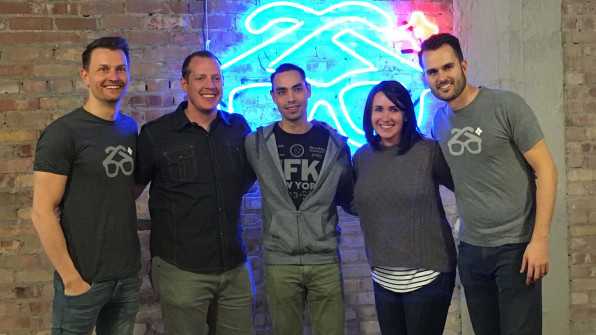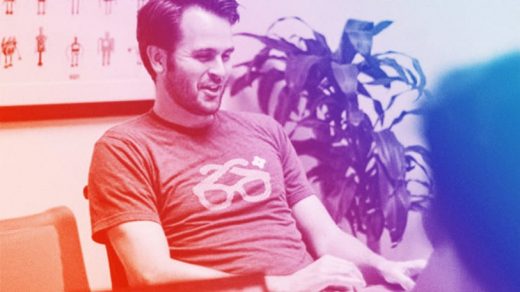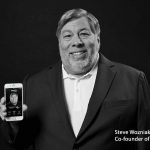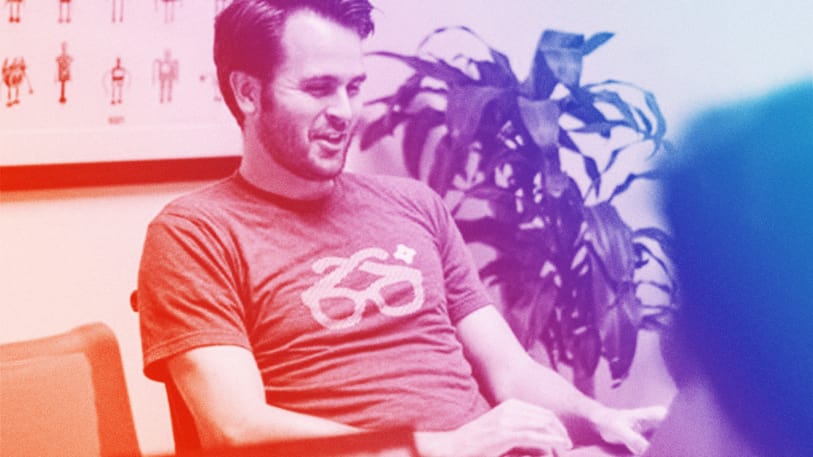Degreed CEO David Blake Wants To Reward Life-Long Learning
In 2012, when David Blake launched Degreed–an online platform where individuals and organizations can discover, track, and measure all their learning and skills–his mission was, as he puts it, to “jailbreak the degree.”
Blake was taking on the educational establishment, which, he believes, “has given universities a monopoly on credentials and defining who is educated. They have the keys to opportunity in the market, and they are a gatekeeper at the front of the path towards upward mobility. I thought that was really unfair.”
Five years later, his company has raised over $30 million and has more than 2 million people using its platform on his bet that grades and test scores don’t predict success in hiring. Rather, what matters is hiring the right people with a proven ability to learn who can take ownership of their learning.
“When you look at people who don’t go to school and make their way in the world, those are exceptional human beings,” says Blake, recalling a remark from Laszlo Bock, the former senior vice president of people operations for Google.

Blake shares the story of meeting one such person in the early days of Degreed. He asked a woman who he estimated was in her mid-50, to tell him about her education. She replied, “Oh, I’m not educated. I didn’t go to university.”
“Here’s a woman, aged 55, and what she did 30 years ago as a 20-something is no longer relevant,” he says. “Yet it’s a lens by which she framed herself and her experience as an uneducated person.”
He offers a comparison: “Think if I asked you, ‘Tell me about your health.’ And you told me that you ran a marathon in 1983. That’s absurd.”
Rejection of Entrance Exams
When Blake took the ACT in high school, he was frustrated by the results. “I scored well, but I did not score proportionally well to how invested I was in my academics. That felt so unjust to me.”
He says, “I realized what university I’m going to get into is half the equation to what jobs I’ll have available to me, and what job I get after university is the rest of the equation for what career I might end up on. Here I am, I’m 17, and I recall thinking that the way the system is set up is crazy.”
Forging His Own Path
Despite his reservations about the education system, Blake ended up attending college and graduating with a degree in economics and took a well-paying job in management consulting. It was the path his father wanted for him, but he felt something was missing. He tried to meet the need by volunteering as a pro bono consultant at Kiva and the Taproot Foundation (which I founded).
“I think back to those days of Kiva and Taproot. Those were the two things I had exposure to where I just felt like a new way of building tech platforms is emerging. It gave me a lot of optimism.”
Then, two weeks before having his first child, he got a call from a tech startup, Zinch. Their tagline–“students are more than a test score”–spoke to him. He was immediately reconnected with his purpose, and despite a 60% pay cut, he joined their founding team.
“I ultimately went back to my parents, and asked if I could move my young family back into their basement so that I could pursue this ambition and this dream.” For his father, this decision went against the advice he had given his son for years, “‘You have a great job. Great benefits. Here you are, beholden to me, you want to live in my basement? So you can pursue your ambition? That’s selfish, and it’s wrong,’” he recalls his father saying.
“To his credit, once he knew I wasn’t going to be pushed off my dream, he supported me and loved me, and we lived in his basement for a while,” Blake says. While working at Zinch for the next three years, his vision for how to change the educational system became clearer in his mind.
Disrupting the Degree
“Ultimately, my ambition is that more people have more pathways to pursue their personal development and learning. Skills, which they can use to become upwardly mobile,” Blake says. Degreed has introduced three disruptions that Blake believes will force the education system to change.
First, it has put an emphasis on skill development. “I think the market wants to speak the language of skills but it can’t, so it speaks the language of degrees.”
Second, it is helping people get credit and track their learning from a wide range of sources. The platform allows you to track your learning from curated classes, but also based on your experience and what you read online, from news articles to YouTube videos.
Finally, it is making learning portable. As you move from one employer to the next over the course of your career you can keep your learning profile and continue to get credit for your learning. When a Degreed customer moves from, say, Bank of America to Citibank, their profile moves with them. This enables our “our skills and our learning be interoperable and travel with us,” he explained.
Finding Comfort in Learning
Blake himself uses the platform. “On a busy day, when things haven’t gone well, sometimes I just give myself permission to take 45 minutes, go sit down, and go find a great article. Take a little “me” time. Watch a great TED Talk.”
In this way, learning becomes a real, daily activity rather than a detached certification process. And it can help build resilience within individuals and across organizations.
You Just Learned Something
In reading this article, hopefully you learned something. It’s now part of your lifelong learning and something Blake believes should always be part of your “learning transcript.” With the Degreed browser extension, you can click on any article that was meaningful to you and it will become part of your learning profile.
“If you can make yourself read everything that is published on a specific topic, you can become one of the world’s most knowledgeable experts on that thing. You just need to commit to yourself,” as he points out, using the same principle that a crowdsourced site like Wikipedia relies on.
Blake’s enthusiasm for daily learning is infectious. And it’s something anyone can do without spending a penny–avoiding the six-figure debt created by higher education. It also enables us to stay educated, preventing us from resting on the degree we got 20 years ago as evidence of our skills and knowledge. It helps create the kind of people Google wants–people with the humility to own their learning.
This article is part of a series of articles by Aaron Hurst exploring how leaders find purpose and meaning in their jobs. Last fall, Hurst’s company, Imperative, released a global survey of the role of purpose at work, in partnership with LinkedIn Talent Solutions, which found that those who are intrinsically motivated to find purpose in their jobs consistently outperform their colleagues and experience greater levels of job satisfaction and well-being, regardless of country, gender, or ethnicity. They are also 50% more likely to be leaders. This series will profile those leaders, and how they connect with what’s meaningful to them in their role and the organizations they lead.
(44)














